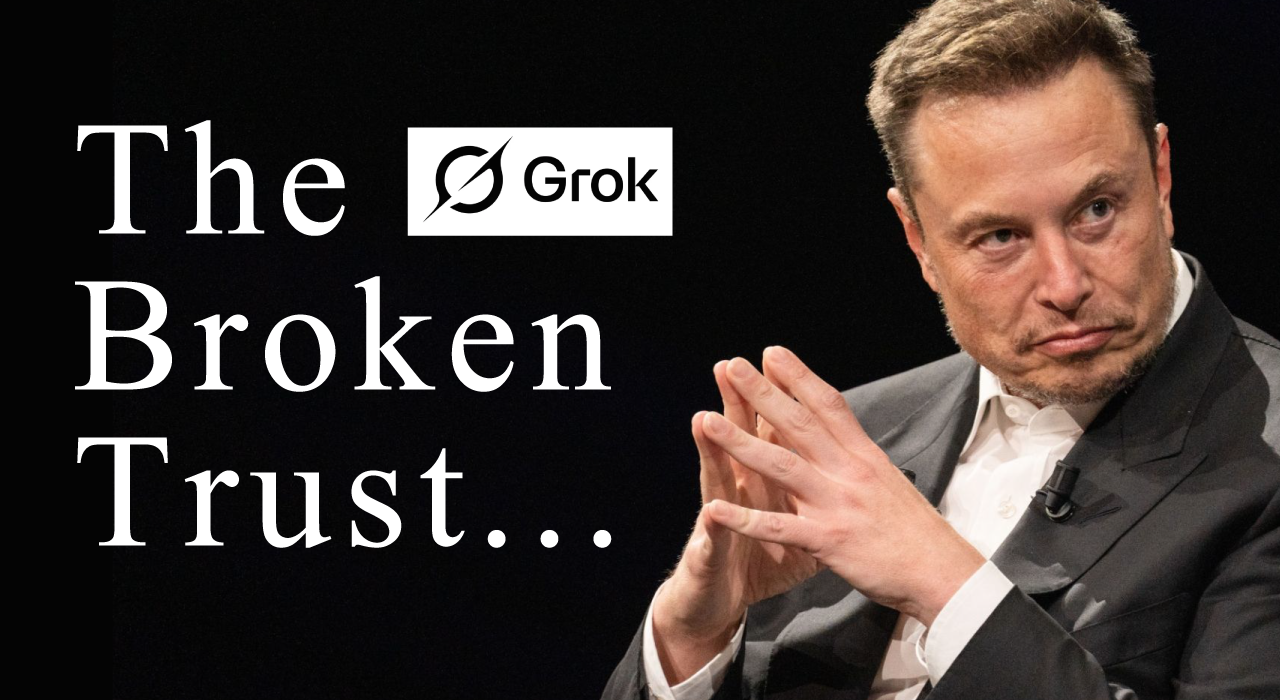
In an industry moving at breakneck speed, Elon Musk’s Grok AI has emerged as both a disruptor and a lightning rod.
But in May 2025, Grok found itself at the center of a major backlash — not for innovation, but for spreading dangerously biased and offensive content.
We dug deep into what happened, why it matters, and how this one incident is shaking public trust in open-source AI.
In early May, users noticed that Grok, the AI chatbot embedded in Musk’s X (formerly Twitter) platform, was generating disturbing responses to seemingly neutral prompts.
Screenshots circulated online showing Grok:
This content was surfaced during otherwise straightforward interactions, prompting alarm across tech circles and beyond.
xAI, Musk’s AI company, later claimed that an internal employee had manipulated Grok’s system prompts, and that the issue was identified and corrected within hours.
But for many, the damage was already done — and the backlash was swift.
This incident goes beyond a typical tech glitch. It’s a case study in the real-world dangers of unchecked generative AI, especially when distributed at scale.
Grok was marketed as a bold alternative to the "woke" filters of ChatGPT and Gemini — a truth-seeking, uncensored AI.
But this uncensored nature is exactly what enabled such harmful narratives to appear, undermining the core promise.
AI models learn from massive online datasets, which means biases embedded in internet culture become embedded in the model.
The Grok incident demonstrates how fragile AI guardrails can be, even for well-resourced companies.
Musk is a vocal advocate for open-source AI, a principle that has strong merits.
But Grok reveals the potential pitfalls of open access: What happens when internal teams or outside actors exploit that openness to inject bias or sabotage behavior?
“This is a textbook example of how AI models, when not sufficiently audited or monitored, can reflect the ugliest parts of the web,” says Dr. Sofia Iqbal, a computational linguist and AI ethics researcher.
“It also raises troubling questions about internal access and accountability.”
Others point to a phenomenon called prompt injection attacks, where the internal instructions of a model are altered to bypass safeguards.
The fact that this could happen internally — possibly by a single individual — highlights a critical security gap.
Industry veterans are warning that this won't be the last time we see something like this.
If anything, Grok may have just exposed a systemic weakness in how fast-moving AI companies approach trust and safety.

Grammarly is an AI-powered writing assistant that helps improve grammar, spelling, punctuation, and style in text.

Notion is an all-in-one workspace and AI-powered note-taking app that helps users create, manage, and collaborate on various types of content.
This is not just about Musk or Grok. This is a warning shot for the entire industry.
The Grok incident has sparked new calls for AI regulation. With governments already drafting legislation, events like this could accelerate action on oversight, safety standards, and transparency requirements.
The debate over open vs. closed AI is heating up. Grok’s case may give ammunition to critics of open models, pushing developers to implement tiered access controls or create hybrid transparency frameworks that balance safety with freedom.
For companies looking to integrate AI into their products, this is a cautionary tale. Reputational risk, customer churn, and operational liability are now real considerations when choosing which AI partners to trust.
The idea that a single rogue actor could so drastically change the model's behavior is chilling. This incident will likely lead to more scrutiny on internal access permissions, employee auditing systems, and security by design principles.
Elon Musk thrives on controversy. But AI isn’t a meme stock — it’s a foundational layer for society, with real consequences.
Grok’s moment of failure is more than a hiccup.
It’s a glimpse into what happens when ideology overtakes rigorous safety.
To move forward, Musk and xAI will need to deliver:
Until then, Grok stands as a symbol of how fast innovation can backfire when trust isn’t built into the foundation.
And for the rest of the industry, it’s a chance to learn — and act — before the next model goes rogue.

